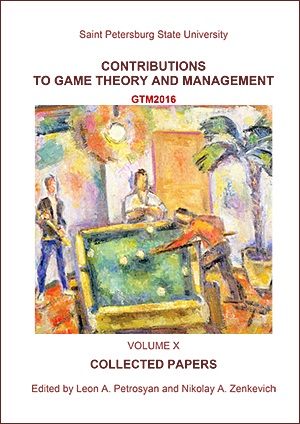A Search Game with Incomplete Information on Detective Capability of Searcher
Abstract
This paper deals with a so-called search allocation games (SAG), which a searcher distributes search resources, such as detection sensors and search time, into a search space to detect a target and the target moves to evade the detection. Although there have been many published papers on the SAG, they almost dealt with complete information games. In this paper, we consider private information of the searcher about the detection effectiveness of the search resource and discuss a two-person zero-sum incomplete information SAG with the detection probability of the target as payoff. We derive its Bayesian equilibrium to evaluate the value of the incomplete information.
Keywords:
search theory, game theory, incomplete information
Downloads
References
Downloads
Published
How to Cite
Issue
Section
License
Articles of "Contributions to Game Theory and Management" are open access distributed under the terms of the License Agreement with Saint Petersburg State University, which permits to the authors unrestricted distribution and self-archiving free of charge.




